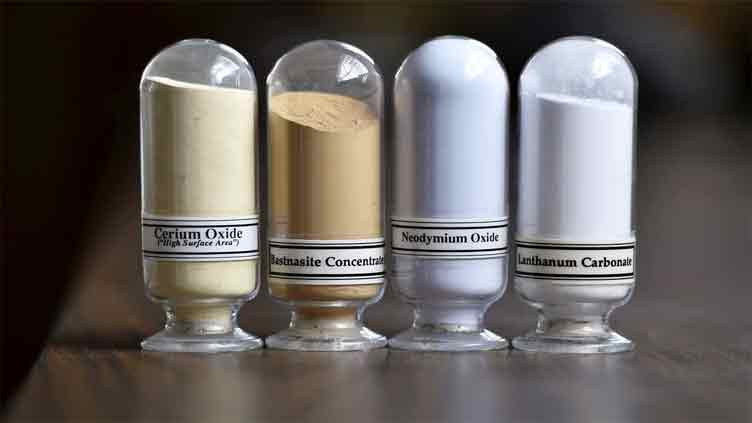Rare earths in focus: Vietnam aims to raise output to 2m tonnes per year

Business
The precious commodities have become source of tension due to high demand
HANOI (Web Desk) - Vietnam aims to raise its rare earths production to 2.02 million tonnes a year by 2030, according to a government plan reviewed by Reuters, as it seeks to tap one of the world's largest reserves of key industrial metals, Reuters reported.
The Southeast Asian country has the world's second-largest reserves of rare earths - an estimated 22 million tonnes - second only to China, according to the United States Geological Survey (USGS). Its rare earths production jumped to 4,300 tonnes last year from 400 tonnes in 2021, the USGS said.
Earlier this month, China announced restricting exports of two metals used in semiconductors and electric vehicles, escalating a technology war with the United States and potentially causing more disruption to global supply chains.
The decision, widely seen as retaliation for US curbs on sales of technologies to China, raised concerns that China might eventually limit exports of other materials, notably rare earths, whose production China dominates.
Coming back of Vietnam, higher output will be helped by extraction from nine mines in the northern provinces of Lai Chau, Lao Cai and Yen Bai, according to the plan signed by Deputy Prime Minister Tran Hong Ha on July 18.
Vietnam will develop three to four new mines after 2030, aiming to raise its raw rare earths output to 2.11 million tonnes by 2050, the document showed.
"The objective of the plan is for the country to develop a synchronised and sustainable industry of rare earths mining and processing," it said.
Under the plan, Vietnam will consider exporting part of the refined output. Only mining companies with modern and environmental-friendly technologies will be licensed for mining and processing, it said, without elaborating.
Rare earths are a group of elements that have applications in electronics manufacturing and batteries, making them important for the global transition towards cleaner sources of energy and in defence.
Apart from mining, the country said it will also seek to invest in rare earth refining facilities, with a target of annually producing 20,000-60,000 tonnes of rare-earth oxides (REO) by 2030.
The plan aims to raise the annual REO output to 40,000-80,000 tonnes by 2050.

